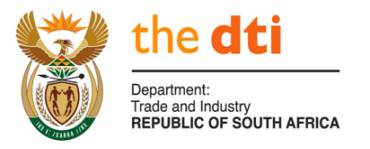South African Workshop Presentations
Two Visibility Workshops have been held on the 28 – 30 January 2010 and 2-4 March 2011 and a Partner & Training Workshop on the 15 – 22 March 2013.
2.2 Abstracts of South African Workshop (March 2011)
2.2.1 Production of biodiesel from canola (winter rapeseed) in the Eastern Cape Province of South Africa – DTI’s experience, 2004 – 2010
Presenter:
Andre Kudlinski
Department of Trade and Industry
 |
 |
Fermentation-derived ethanol was blended with petrol in South Africa from 1930’s to early 1960’s; subsequently, synthetic (coal-based) ethanol was added to petrol. In the 1970’s, the South African Council for Scientific and Industrial Research (CSIR) pioneered research on the conversion of ligno-cellulosic material into ethanol, by fermentation, and vegetable oils into fuel for diesel engines (trans-esterification, invented by South African Louwrens du Plessis). The introduction of oil embargo in November 1987 triggered new research into biofuels, but low prices of crude oil in the late 1980’s / early 1990’s made such projects non-feasible.
The Department of Science & Technology re-started work on biofuels (initially focusing on biodiesel) in 2003 (Joint Implementation Committee, JIC).
In December 2007, the Department of Minerals and Energy (DME) launched the 5-year Industrial Biofuels Strategy, setting the non-mandatory target for 2008 - 2013 at 2% penetration level of biofuels at the national level, thus 400 million litres per year. The main objectives of the Strategy were job creation (focusing on the former homelands), contribution to the national fuel security, environmental (reducing CO2 emissions) and “acting as a bridge between the 1st and 2nd economies”.
Commercial Issue Problem
Despite Government’s support, investments in commercial-scale biofuels projects in South Africa have been very modest to-date. Between 2004 and 2010 the DTI reviewed over 20 commercial-scale biofuel projects (15 liquid and 5 solid biofuel projects), most of which were approved for DTI’s investment incentives. Only 4 projects have materialized so far (all four of them solid biofuels i.e. wood pellets / granules), but none of these projects has become profitable. The biggest disappointment has been the absence of successful liquid biofuel projects. The Ethanol Africa project in Bothaville, which received from DTI tax allowance of R 600 million, was cancelled. Sasol and the CEF cancelled their R 700 million soy biodiesel project in Newcastle. It appears that only 3 biofuel projects are still “alive” (IDC/CEF sugar beet ethanol in Cradock, “Phyto-Energy” canola biodiesel and “Rainbow Nation” soy biodiesel, both in Eastern Cape), albeit not a single one has yet progressed to the construction phase.
The project is highly profitable if biodiesel is exported to the EU; it becomes not feasible, or only marginally feasible if the biodiesel is sold in South Africa, at the current level of crude oil prices / SA refined fuels’ prices / SA incentives (50% rebate on fuel levy). Feasibility study completed, debt finance for the construction of the refinery is available, but the investors are struggling to raise funds to finalize the basic engineering and the environmental impact assessment (EIA) ⇒ bring the project to financial closure. Project (the canola farming part) perceived as risky; limited interest / appetite for risk among SA fuel companies and SA financial institutions. Project supported by DTI’s grant under the offset (NIP) programme.
Lessons Learned
The project is highly profitable if biodiesel is exported to the EU; it becomes not feasible, or only marginally feasible if the biodiesel is sold in South Africa, at the current level of crude oil prices / SA refined fuels’ prices / SA incentives (50% rebate on fuel levy). Feasibility study completed, debt finance for the construction of the refinery is available, but the investors are struggling to raise funds to finalize the basic engineering and the environmental impact assessment (EIA) ⇒ bring the project to financial closure. Project (the canola farming part) perceived as risky; limited interest / appetite for risk among SA fuel companies and SA financial institutions. Project supported by DTI’s grant under the offset (NIP) programme.
Solution to the Problem
Review of the 2007 National Biofuels Strategy requested by the Cabinet of Ministers. Not a single commercial-scale liquid biofuel project has materialized in SA in 2008 – 2010 despite record-high prices of crude oil. SA incentives do not seem to be sufficient to attract investment in biofuels (case study – Phyto-Energy). We need to look beyond biofuels adding value to by-products e.g. sugar cane converting biomass (bagasse) to electric energy, subject to favourable feed-in tariffs (potential for adding 1,200 MW to the national grid). Corn cobs conversion to furfuryl aldehyde? Soy meal conversion to food-grade protein concentrate? The promise of 2nd generation biofuel technology e.g. Cellulosic ethanol, biomass-to-liquids, algal biodiesel…. But the question remains when?
The author of the presentation is trying to establish the reasons of such a disappointing state of affairs in the South African biofuels. The case study analyses the Phyto-Energy canola biodiesel project, pursued by the German-Swiss company Phyto-Energy since 2004, with financial assistance received from the DTI.